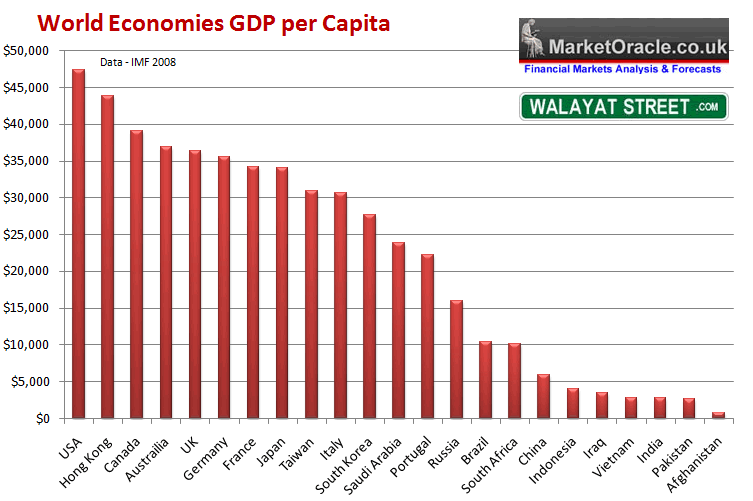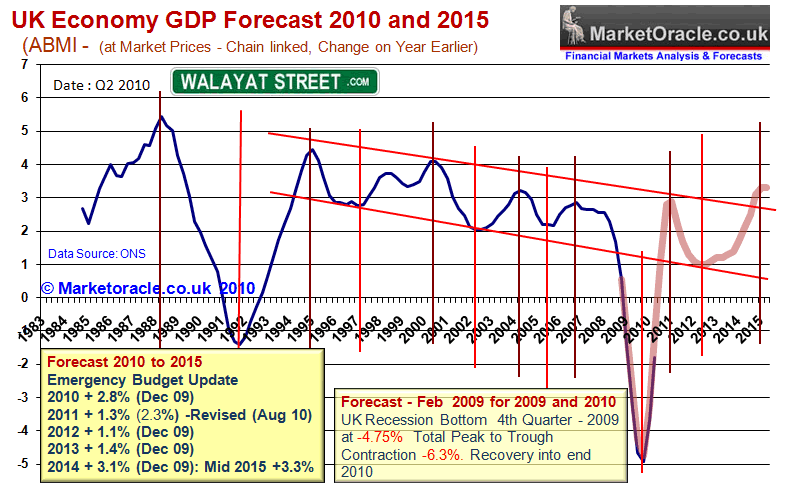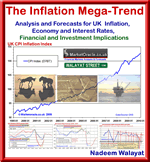UK Economy GDP Growth Forecast 2010 to 2015
News_Letter / UK Economy Aug 14, 2010 - 07:24 PM GMTBy: NewsLetter
 The Market Oracle Newsletter
The Market Oracle Newsletter
August 9th, 2010 Issue #46 Vol. 4
UK Economy GDP Growth Forecast 2010 to 2015Inflation Mega-Trend Ebook Direct Download Link (PDF 3.2m/b) Dear Reader This analysis is a continuation of the UK Debt Forecast article (UK ConLib Government to Use INFLATION Stealth Tax to Erode Value of Public Debt ) on the impact of the new coalition government having effectively hit the reset button on the UK economy to now primarily target a reduction in the £156 billion annual budget deficit which aims to suck £113 billion a year out of the economy by 2015-16 by means of swinging public sector spending cuts and tax rises. The government has now clearly reversed the Labour governments policy of continuous fiscal expansion and set the country on a course for severe fiscal contraction for at least the next 3 years. This analysis seeks to update my existing UK GDP growth forecast for the next 5 years. The analysis of December 2009 concluded in a trend forecast as illustrated below (31 Dec 2009 - UK Economy GDP Growth Forecast 2010 and 2011, The Stealth Election Boom ), with the most recent UK GDP data confirming strong growth data for the second quarter of 2010 of 1.1%, annualised to 4.4%, which caught the mainstream press, academic economists and even the City by surprise who had typically penciled in growth expectations of between 0.3% and 0.5% and remain firmly fixated on the prospects for a UK double dip recession. Existing UK GDP Forecast Growth Forecast 2010-2012, Preliminary 2013-2014 The UK economic GDP growth for 2010 Q2 came in at 1.1% compared against my forecast of December 2009 Q2 growth of 1.3% (31 Dec 2009 - UK Economy GDP Growth Forecast 2010 and 2011, The Stealth Election Boom ). The growth trend is inline with my forecast expectations that projected a strong economic recovery starting in Q4 2009 and for the whole of 2010 continuing into 2011 as illustrated below. UK GDP Growth Forecast Conclusion The sum of the above analysis is for a strong economic recovery into the end of 2010 which given the pessimism today I term as the Stealth Election Boom that followed the Stealth Bull Market of 2009, the economic 'boom' will continue in to a peak in Q1 2011, which will be followed by weakness during 2012 and 2013 and strong recovery for 2014, and into a 2015 summer general election, breaking this trend down into GDP terms for end 2010 +2.8%, 2011 +2.3%, and taking account of the election cycle preliminary GDP projections for 2012 of +1.1%, 2013 +1.4%. 2014 + 3.1% with expectation of strong Q1 growth for 2015. Therefore I just cannot see this double dip recession that the mainstream press and so called think tanks are obsessing over at this point in time, no year on year economic contraction or even a quarter on quarter dip is visible. The following graph illustrates my trend forecast for quarterly GDP growth over the next 2 years 2010 and 2011.
Growth for the first half of 2010 now stands at 1.5%, which compares favourably against my expectations for 2010 growth of 2.8% and compares against forecasts of academic economic institutions as the below table from the Inflation Mega-Trend Ebook illustrates (FREE DOWNLOAD) - UK Economic Growth 2010
Coalition Government Austerity Measures The June 2010 Emergency Budget announced intentions to take £40 billion out of the economy during 2010-11, rising to a total drain of £113 billion per year by 2015-16 so as to cut the budget deficit from £156 billion per year down to £20 billion by that year. The key measures announced were -
Where the economy is concerned the policy that will have the most impact on the U.K. economy are public sector spending cuts that won't start to bite until October, with many of the cuts not materialising until well into 2011 which suggests that the real impact of the governments austerity plan won't be felt until Q2 2011. Coupled with the VAT rise from 1st of January 2011 implies significantly lower growth for 2011 than my original forecast of 2.3%. Coalition Government OBR UK GDP Forecasts The coalition governments own independant body (though housed in the Treasury) for forecasting economic growth has revised its own expectations (June 2010), and are compared against my Dec 2009 forecasts (NW):
As the most recent data shows the governments own forecast for UK GDP for 2010 has already become redundant as growth already stands at 1.5% for 2010. However 2.3% for 2011 matches my forecast of 6 months earlier which sends my own alarm bells ringing, though there is significant difference for 2012 and 2013 where the OBR / Government appear overly optimistic. Academic Economists Flawed Theoretical models The academic economists that populate the mainstream press are obsessed with the demand side of the equation i.e. Keynesian stimulus that calls for every more deficit spending debt accumulation that will always FAIL to delivery, whilst at the same time ignoring the supply side of the economic equation that succeeded in resolving the 1980's mini-depression into an economic boom as a consequence of supply side changes to the UK economy. The coalition government appears to be following this working model as it takes an axe to Labour's out of control public sector spending and the deficit whilst laying out plans for cutting corporation taxes, even if income and indirect taxes such as VAT are on the rise. The key to future economic growth is ONLY from the private sector, towards driving innovation, competitiveness and productivity and by cutting taxes and red tape as illustrated by the article (31 Mar 2010 - Solving Britain's Economic Crisis Through Micro Business Capital Investments and Credit ). The recent emergency budget illustrated the governments intentions to cut the budget deficit by means of a ratio of 80% of public spending cuts to 20% of tax rises which matches the shift towards a private sector growth orientated economy that had been increasingly crowded out by the last Labour governments policies of an out of control public sector spending binge. Meanwhile frankly, clueless academic economists remain fixated on stimulus deficit spending to fend off an always impending "double dip" recession that their policy suggestions would actually turn out to be the prime drivers for bringing as illustrated below: Telegraph - Britons' fears raise double-dip recession chance The prospect of a double-dip recession in Britain is increasing with every month as consumer confidence dwindles to recession levels, a long-running study signaled. Bloomberg - Blanchflower Says Budget `Certain' to Lead to Double Dip Former Bank of England policy maker David Blanchflower said the spending cuts the government plans in its emergency budget tomorrow “look certain” to push the U.K. back into a recession. “You can’t just decimate the public sector and assume the private sector will step into the hole,” Blanchflower said in an interview on Bloomberg Television’s “Countdown” in London today. “The danger now is we’re certainly going into a double- dip recession. I think that’s absolutely certain given what’s coming.” Financial Times, Martin Wolf is worried that the concerted austerity of Germany, Britain and other industrialised countries may "destroy the recovery". Guardian - Britain's leading companies increasingly fear the UK could suffer a double dip recession because of government public spending cuts and a renewed economic slowdown across the globe, according to a report released today. Telegraph - A survey of chief financial officers (CFOs) by Deloitte found that a balance of just 24pc were feeling more optimistic in the second quarter, compared with 40pc in the first quarter. It was the lowest level in 12 months, as the average CFO attached a 38pc probability to the chance of a double-dip, up from 33pc previously. Economic Coin Flips Economic analysis is not a science or an art but the calling of a series of coin flips (as is stock market analysis), the actual determining item that flips into a final conclusion may be something inconsequential on its own, realising this will put analysts ahead of the curve. The Grand Media Star Wizards that propagate the press and academic institutions use formulae's and theories as smoke and mirrors to try and persuade you otherwise, but still at the end of the day come out with statements such as there is a 50/50 chance of a double dip recession, 50/50 chance of deflation, 50/50 of..... However without firm actionable conclusions such statements are pretty much worthless. The bottom line, despite the coalition governments severe but highly necessary austerity measures, the actual probability of a double dip recession is extremely low, so instead of a 50% coin flip, I would put it as low as a 15% probability. Coalition Government Election Boom 2014-15 Strategy The governments intention to pull a potential 9% of demand out of the economy by 2015-16 means that the next 3 years at least are now going to result in weak economic growth as at least 1 million jobs will be lost (500,000 public sector and 500,000 linked private sector jobs) that are only partially offset by new private sector jobs created as illustrated by the UK unemployment forecast below (01 Jul 2010 - UK Unemployment Forecast 2010 to 2015 ). Final conclusion - UK unemployment looks set to gradually rise to a peak of just over 2.9 million by mid 2013 before stabilising and starting to decline into a May 2015 General Election of just below 2.7 million against the governments forecast for UK unemployment to fall to 2 million by 2015 (OFBR - Peak at 8.1% this year before falling to 6.1%).
Though beyond the job cutting phase into early 2013 we enter the electioneering phase of the Coalition government in the run up to the May 2015 General Election, that is likely to see significant tax cuts which will place the economy in a far stronger growth state, which by then will have significantly larger more productive private sector economic base than the current position where the public sector under the Labour government has mushroomed to an unsustainable 53% of the economy. This trend expectation is illustrated by my debt forecast (29 Jun 2010 - UK ConLib Government to Use INFLATION Stealth Tax to Erode Value of Public Debt ), that implies that the Government will abandon its deficit cutting austerity programme during 2013 so as to maximise the the potential for an election win in May 2015.
The coalition governments election boom strategy suggests that 2013 may turn out to see stronger economic growth than the 1.3% forecast of December 2009, with the forecast for 2014 of 3.1% remaining the most probable outcome. HMRC and Company Bankruptcies During the recession the HMRC had agreed for many small companies to delay payment of taxes, now as the economy recovers it will be going after these small companies, a significant number of which will go bankrupt. The HMRC is chasing approx £10 billion which roughly translates into a potential of 100,000 company bankruptcies, thus adds to some downward pressure on the economy during the next 2 years against the OBRS more optimistic growth forecast. Why You should Not Pay any Attention to PIMCO on the UK Economy the PIMCO $1+ trillion dollar bond fund on face value appears to be failing in all directions on the UK economy. A few weeks ago PIMCO's head Bill Gross was calling UK gilts nitroglycerine. Now he has apparently turned bullish on the UK economy and UK debt market, so has gone from imminent collapse to a strong bull in just a few weeks. It seems obvious that if mega market moving funds of over $1 trillion want to buy a sizeable position in a market then the best thing to do is to talk the market down to accumulate into it, which appears to be what PIMCO has been doing which is reflected in sterling's strong trend, as instead of the Gilt market falling it has actually risen quite strongly since Gross's doom comments. The lesson here is to consider the media stars that do the rounds on the likes of CNBC and Bloomberg as either propagandists that are not going to tell you anything that you will actually profit from, as position's to be accumulated or academic economists trying to sell their latest books. Stocks and Housing Bull Markets Generate Economic Growth As is usually the case, the press and academic economists remain permanently fixated on looking through the rear view mirror, writing reams and reams to explain what has already happened. Whilst their response to one of the greatest drivers for economic growth is to state that that the stock market is detached from reality. Yes I said DRIVER, not LEAD INDICATOR which is the consensus view that the stock market rises to discount future economic growth, which is not quite accurate, a rising stock market acts as a strong positive feed back loop that GENERATES economic growth, that GENERATES RISING Corporate Earnings. This is why the vast majority of analysts that are fixated on valuations and corporate earnings conclude that stocks cannot rise because they are over valued by as much as 40%. When the reality is that the stock market TREND MANIFESTS the economic reality, as I pointed out in Mid March 2009 (Stealth Bull Market Follows Stocks Bear Market Bottom at Dow 6,470) whilst many prominent analysts were stating at the time that stocks could not rise due to the fact that corporate earnings were expected to collapse instead corporate earnings are now materialising to surprise to the upside which is despite the fact that the banks are not lending. I would imagine that the banks are viewing the surge in corporate earnings as a key indicator for increasing lending going forward to finance mergers and acquisitions, something that will NOT appear in analysis of rear view mirror statistics on bank lending. The bottom line - The stock market as a whole does not FOLLOW or LEAD, it GENERATES economic activity. The trend expectations as of March 2009 remains for a multi-year bull market with the forecast trend road map for 2010 illustrated below - My forecast remains for the Dow to target 12k to 12.5k by late 2010, or about a 15% advance on the current level (10,653) which converts into upward pressure on GDP for the balance of 2010 and into 2011, so is not suggestive of a double dip recession at least for the rest of this year and into mid 2011, if anything U.S. growth may actually surprise to the upside, which is contrary to the current stream of 50/50 double dip recession coin flip commentary in the press. The Dow's most recent price action has now fulfilled my last in depth analysis trend expectation of May 2010 (16 May 2010 - Stocks Bull Market Hits Eurozone Debt Crisis Brick Wall, Forecast Into July 2010 ) for the Dow to target a low to 9,800 during June to be followed by a rally to 10,700. My next in depth analysis is now pending to cover the period into October that will primary focus on the timing for the prospects of the break to a new bull market high and the quality of any corrective downdraft expected during October, to ensure you receive this in your email in box ensure you are subscribed to my ALWAYS FREE newsletter. Many analysts point to falling government bond yields as being bearish for stocks, I would say NOW the complete opposite is true, bonds are in fact in a bubble, with safe high dividend paying stocks effectively dirt cheap. What's going to give ? Even lower bond prices ? I don't think so ! There is going to be a major repricing exercise that is going to send stocks sharply higher and bond prices sharply lower that will leave the majority of commentators rewriting what they are writing today to pretend they saw the repricing coming when the exact opposite is true! Asset Prices - The same asset price inflation inducing growth can be applied to other major asset classes such as the UK housing market that has bounced by more than 10% off of the March 2009 lows, and personal savings that have acted as a drag on the economy as net interest rates being paid are less than half the official CPI inflation rate. However the overall wealth effect on future growth has been strongly positive taking all asset classes into account that is feeding into strong UK economic growth for 2010 into 2011 as we are witnessing in the most recent UK GDP growth data.
An in depth analysis of UK house prices that will culminate in an multi-year forecast ebook is now underway which I aim to complete within the next 6 weeks. UK Population Growth Driver Whilst much of Europe's population stagnates, UK population continues to grow strongly as a consequence of a positive births / deaths balance and continuing immigration that contributes towards 1/3rd of the increase in Europe's annual population occurring in Britain. The recent UK population growth analysis article (02 Aug 2010 - UK Population Growth and Immigration Trend Forecast 2010 to 2030) concluded in the following forecast trend graph.
The impact of a rising population is to continue to put upward pressure on nominal GDP even if it means not much change in per capita GDP. Which also continues to feed the UK Inflation Mega-Trend. High UK Inflation Plus Low Growth Equals Stagflation UK Inflation of CPI at 3.2% for June 2010 is exactly in line with my trend forecast for 2010 as of December 2009 that projected June inflation data of 3.2%. My analysis since November has been warning of a spike in UK inflation as part of an anticipated inflation mega-trend (18 Nov 2009 - Deflationists Are WRONG, Prepare for the INFLATION Mega-Trend ) that culminated in the forecast of 27th December 2009 (UK CPI Inflation Forecast 2010, Imminent and Sustained Spike Above 3%) and the Inflation Mega-trend Ebook of January 2010 (FREE DOWNLOAD) as illustrated by the below graph.
Inflation as illustrated at length in the INFLATION MEGA-TREND EBOOK, is a powerful stealth tax that the new government is using to first stabilise and then reduce the debt in terms of percentage of GDP that despite total debt increasing by 50% to £1.24trillion, the ConLib government aims to stabilise the debt at about 70% of GDP and then target a trend lower to about 65% of GDP by 2016.
According to the Bank of England's forecast for UK inflation of 18 months ago (Feb 2009) - June 2010 CPI Inflation should by now be at 0.9%, instead of the actual rate of 3.2%. Whilst this years Bank of England Inflation Report (Feb 2010) of barely 6 months ago forecast that UK inflation by June should have fallen to about 1.8%, instead it is at 3.2% (see graph). Therefore how credible have the Bank of England's persistent claims that the ongoing rise in UK inflation is just "temporary" and that it is forecast to fall to UNDER 1% by the end of 2010 (Feb 2010) ? The Bank of England has a track record of being wrong 96% of the time in its inflation forecasts of where inflation will actually be in 2 years time, as the usual mantra is for UK inflation to magically converge to 2% in 2 years time, much as the graph on the right concludes towards. VAT 20% Inflation Surge Time Bomb The ticking inflation surge time bomb has been primed to go off during early 2011 as a consequence of the ConDem governments emergency budget VAT hike from 17.5% to 20% that will likely result in an surge in Inflation to above 4% CPI and 6% RPI as I wrote of during the election campaign (05 May 2010 - Greece Economic Depression Resulting in INFLATION NOT DEFLATION Surge ) A post UK election VAT hike to 20% from 17.5% is near certain to bring in extra revenue of about £13 billion per year. This will have the effect of both spiking inflation sharply higher and maintaining the ongoing longer-term inflationary mega-trend, therefore I would not be surprised that following the implementation of a VAT tax hike that CPI spikes above 4% and RPI as high as 6%! Which would further discredit the Bank of England's mantra of "Don't Worry Folks its Only Temporary". I wonder how many ordinary UK citizens will still believe the Bank of England's statements of temporary inflation when they see Inflation of CPI 4%+ and RPI 6% a year on. Will they still be willing to accept wage hikes of 2% or even freezes, or will they start to demand ever higher wage rises to match surging inflation and hence feed the the wage price spiral. Therefore my expectations remain unchanged for the continuation of the high UK inflationary trend well into 2011 and beyond, with an in depth forecast for 2011 to follow before the end of 2010 that will aim to replicate the accuracy of this years forecast. Overall in economic terms this points to a long period of stagflation i.e. low economic growth plus high inflation. Low UK Interest Rates Only for the Banks The Bank of England kept UK interests on hold at 0.5% last week as it continues its policy of IGNORING HIGH UK inflation that continues to stand above the Bank of England's 3% upper limit for the purpose of the BoE continuing to funnel tax payer cash onto the balance sheet of bailed out bankrupt banks as illustrated by the most recent banking sector profit announcements, most of which are fictitious as in actual fact the banks are not generating any profits because they continue to only partially write down bad debts. The only reason why bankrupt banks are announcing profits is so as to allow them to pay their chief officers huge bonuses as a reward for succeeding in conning the tax payers by means of threats of financial armageddon as inept regulators with themselves having one hand in the cookie jar watch on as they intend to return to commercial banking themselves so as to have their turn at getting a piece of the tax payer funded bailout pie. The ways and means by which these fictitious profits are being achieved are many, such as The Bank of England loaning the banks at 0.5% which they then run along and invest at zero risk in longer dated UK government stock at 3.5% and thus make a 3% risk free profit with the tax payers money, meanwhile the ordinary tax payers who have been saving hard all their working lives are seeing the value of their savings being stolen by means of the stealth inflation tax as banks drunk on central bank cash pay a pittance of less than 2% in interest whilst even the official doctored CPI inflation rages at 3.2%, well above the BOE target of 2%. And not to forget the government adding insult to injury by TAXING the pittance of interest received at 20% for basic rate and 40% for higher rate tax payers. Similarly borrowers are not receiving anywhere near 0.5% for loans and mortgages as most mortgage borrowers will be lucky to see any rate below 4% with many on rates of as high as 6% which is resulting in huge profit margins for the banks that continue to penalise their customers for their own mistakes. Where savers and borrowers are concerned Britain would be far better off with a nationalised banking sector that exists purely to service the loans and savings market rather than the bankster elite maximising the amount of money that can be stolen from tax payers, savers and borrowers by means of an officially sanctioned artificial banking system. In all probability we remain sometime away from a point when the tax payer monies stop being funneled onto bank balance sheets which implies a continuing theft from savers of the the value of their wealth by means of inflation and interest income tax, which means continuing low interest rates, which is set against my forecast of January 2010: UK Interest Rates Forecast 2010-11: UK interest Rates to Start Rising From Mid 2010 and Continue into end of 2010 to Target 1.75% / 2%, Continue Higher into Mid 2011 to Target 3%. (UK Interest Rate Forecast 2010 and 2011 ) This requires in depth analysis to fully evaluate the impact of the coalition government hitting the reset button on the economy, which will follow in the next few days, to receive this in your email box ensure you are subscribed to my Always FREE newsletter. The impact of continuing low interest rates 'should' act as a huge boost for the UK economy,however the bailed out banks are NOT Lending to small and medium sized businesses, this is illustrated by Lloyds TSB statements of increasing lending to small business by £24 billion, whilst hoping that people will ignore the fact that there has been NO increase in NET lending i.e. new lending is offset by repayments from businesses. In total that banks have sucked an estimated £50 billion OUT of the economy instead of increasing lending by £60 billion as promised several times to previous Labour Government. Therefore the benefits of the 0.5% interest rates are only being reaped by the banks and not the wider economy. The impact of this is that the 0.5% interest rate is having little effect on the UK economy, therefore a rise in UK interest rates to 1% would similarly have little effect on the UK economy but would increase the cost of financing Britains huge budget deficit and the continuing tax payer bailout of the banks. The implications for the UK economy are for UK interest rates to be maintained at a low rate until more of the bank bad debt losses have been paid for by the tax payers. However even when the banks become more liberal in lending, the boom years of 120% mortgages are not even apparent on a 5 year time horizon, which suggests consistently below trend economic growth for many years if not the rest of the decade. The Bank of England has succeeded in inflating the bank share prices towards break even levels where the capital injection elements of the tax payer funded bailouts are concerned. This has prompted the bankster elite and their minions in the press to start calling on the government to sell its bank shares at break even levels, whilst conveniently forgetting that the capital injections of some £100 billion amount to a mere tip of the tax payer bailout of the banks iceberg of over £1 trillion, so effectively the bankster's return to the tax payer 10% of the pie in return for 90% of the cake. Instead the government should fully nationalise all the banks it has stakes in, which despite Liberal Democrat influences is not going to happen, so the coalition government will at some point follow the Thatcher trick of selling shares on the cheap to the general public in the run up to the May 2015 general election which will have an economic wealth effect as share buyers will be sitting on instant profits of as much as 30%. The bottom line - The Bank of England is paralysed by the fear of Credit Crash II, therefore it is sowing the seeds of high inflation for many years if not more than a decade by NOT Acting to bring inflation under control during 2010, the price for which is being paid for by ordinary citizens. Stuttering Euro-Zone and U.S. Economic Recovery's Europe - Europe has been reeling from the sovereign debt crisis shock waves emanating out of Greece, Spain and the other PIGS, however whilst the headlines of debt deflationary depressions may hold true to an extent for the PIGS, they do not speak for the other 85% of Europe, especially the industrialised north with Germany at the heart of the economic revival. especially as a weak Euro currency acts as a huge boost for German exports. Therefore the PIGS crisis has been hugely beneficial for Germany which despite having to bail them out looks set to enjoy a strong exports led economic recovery over the next few years. With other north european countries not too far behind. The effect of a strong recovery plus weak currency therefore suggests inflation and higher interest rates are not too far away for the eurozone which is contrary to the current mainstream press clamour of eurozone deflation, depression and calls to cut Euro zone interest rates when the exact opposite is more probable. U.S. - The immediate focus of attention in the U.S. has been on abysmal U.S. jobs numbers that have seen no change in the headline U.S. unemployment rate of 9.5% which has barely changed from the recession peak of 10.1% registered in October 2009. Many commentators have concluded that this further confirms expectations that the U.S. is heading for a double dip recession. Whilst the economic numbers do look bad when taken individually, especially in the face of the US governments and Feds ongoing fiscal and monetary stimulus which is contrary to the increasing austerity of Europe. However that can also be down to the fact that increasing the size of the government is NOT actually what is best for generating sustained economic growth as increasing the public sector by means of increasing debt just crowds out the productive private sector which will result in lower economic activity, especially as deficit spending is not sustainable. Therefore on the plus side many of the jobs being lost in the U.S. are state and federal public jobs whilst most of the jobs being created are private sector which as we can see are more or less canceling out in the headline figures but are a positive in terms of generating economic growth. Also as is the case of the trend for UK unemployment, US unemployment is not going to suddenly fall and may even rise as companies will remain reluctant to hire until they see a government that is in firm control of the economy rather then one that apparently only knows how to press the print money button. So U.S. unemployment may yet have to peak, which does not bode well for the Democrats in terms of U.S. politics i.e. the mid-term elections in November 2010, which suggests continuing engineering (printing money) to artificially hold unemployment down until the elections are out of the way which effectively means delaying real economic recovery. Looking at the markets once more to see what is actually happening against what should happen we see a stock market that is just 5% from its bull market peak which implies a growing economy and the U.S. Dollar that has gone into reverse gear that implies a weaker economy and low interest rates with more money printing. Whilst not signaling a double dip recession, it is neither signaling a strong U.S. Economic recovery therefore continues to suggest a low growth outcome as the most probable outcome for the U.S. over the next few years which is similar in expectations for the U.K. economy i.e. well below trend growth for 2011 to 2013. Bottom line - The large industrialised export orientated areas of the Eurozone such as Germany are going to BOOM! Therefore the PIGS sovereign debt crisis is old news. The U.S. looks set to experience sluggish growth. China Boom Continues The Chinese central planning capitalists are succeeding in slowing the over heating Chinese economy down towards a growth rate of about 8%, this is prompting the press and aspects of the BlogosFear to conclude that China is heading for a crash, collapse , as illustrated by Marc Faber's continuing commentary - India Times - China may 'crash' in next 9-12 months: Investor Marc Faber said China’s economy will slow and possibly “crash” within a year as declines in stock and commodity prices signal the nation’s property bubble is set to burst. “The Chinese economy is going to slow down regardless. It is more likely that we will even have a crash sometime in the next nine to 12 months.” This is in complete ignorance of the fact as illustrated in the Inflation Mega-trend Ebook (FREE DOWNLOAD), that the large emerging giants have the room to continue to grow at rates of between 5% and 10% for many more years - Inflation Mega-Trend Ebook - Page 54 And last but not least is the per capita graph capacity as illustrated by the following graph:
At the present, the mainstream press is busy worrying about the credit bubble in China, however the economic growth to date has barely bridged the huge gap between the emerging market giants and established western economies which implies a huge potential for the gap to narrow as manifested by strong growth in the emerging markets and below trend growth or even economic stagnation by many of the western economies which means that capital investments made today can be expected to return significant real capital growth over the next 10 years on the basis of real GDP growth that typically targets a growth increase of 100%. Therefore rather than economic collapse, the emerging giants are still a long way from hitting capacity constraints as measured by per capita output. There exists huge potential for increased productivity in asia whilst in the west huge over capacity as wages over the next decade or two as productivity and wages will continue to converge which implies strong growth for the likes of Chindia and low growth or even stagnation for the developed West. This implies that investors should continue to take advantage of short-term stock market volatility that present excellent long-term accumulation opportunities as I pointed out 3 weeks ago for China (18 Jul 2010 - Stocks Stealth Bull Market Correction Generating China Buying Opportunity? ), just as many commentators were announcing that the Chinese stock market was heading for a crash when the SSEC was trading at 2,424, with the continuing benefit and real time experience for western investors of an appreciating Yuan currency as illustrated by the strong performance of the key China FXI ETF. Internet Information Age Boom Continues Human eagerness to share information appears to be encoded in our genes which is why we have trended towards the creation of the internet that at present represents the pinnacle for free sharing of information and ideas that seeks to have an exponential impact on human productivity as the reach, depth and available supply bandwidth continues to expand. All of which implies both greater overall productivity & wealth and greater equalisation of earning power across the world. Where literally bright individuals can be stationed anywhere on the planet without restriction on earning and purchasing power. Therefore despite the dot com crash of the noughties, the worlds largest companies are increasingly listing huge internet based cash cows such as Google that are increasingly driving innovation in connecting the virtual world with the real world that concludes towards ever greater personal and corporate much as the mobile phone has achieved during the past 20 years and the PDA's during the past 5 years so will the expansion in human real life immersion into virtual work and play worlds that will develop over the next 10 years driving huge gains in human productivity and economic growth, wealth and prosperity that will branch out in all directions. The internet information age has barely begun and where the west has a clear advantage over states such as China which lacks the necessary freedom of thought elements to compete against countries such as the UK and USA (as long as they don't converge towards where China sits). In conclusion, the economies of the west, east and south contrary to much that you will read are not heading for a Deflationary Great Depression II, World War III or the end of civilisation just as the doom mongers at the end of the last millennium were stating. The western economies point to a period of below trend economic growth with inflation for the next few years, with the UK at the head of the list, U.S. in the middle and parts of Europe averaging third in line in terms of inflation / growth rate expectations. Quantitative Easing Talk of further QE had gone quite earlier in the year and remains so in the UK. However in the U.S. the talk of quantitative easing having ended in March 2010 has now been replaced with chatter for QE2. However, I have always maintained since March 2009 that once started Quantitative Easing is difficult to stop regardless of the statements emanating out of the central banks, as the only answer the governments have to weak economic activity is to continue printing money to inflate economies and asset bubbles. UK Growth Forecast Conclusion 2010-2015 The conclusion drawn from the sum of the above analysis is that the forecasts for years 2010, 2012,2013 and 2014 remain unchanged as per the original analysis and forecast of December 2009 (UK Economy GDP Growth Forecast 2010 and 2011, The Stealth Election Boom). However the original forecast for 2011 is now overly optimistic in the face of the governments recently announced severe austerity measures, therefore the forecast for 2011 GDP growth is revised lower to 1.3%:
The trend forecasts for the three years from 2011 to 2013 suggests that of a stagflationary environment of low growth and above trend inflation to be followed by an engineered election boom into May 2015 starting in 2014. Whilst growth for 2012 to 2013 is expected to be well below trend, however at this point I still do not see any signs of a double dip recession that the academics and the mainstream press have been obsessing over for the past year, in fact the London 2012 Olympics could see South East experience an early economic boom. However against this areas with large public sectors such as the North of England, Wales and Scotland, where there are city's where the public sector amounts to more than 70% of the economy probably will experience a double dip recession as the spending cuts start to hit during 2011 and 2012. Coalition Government Risks to the forecast Risks to the Forecast are political, in that if the coalition government disintegrates resulting in an early general election during 2012 and 2013 then that would negate the balance of this forecast. If the coalition government can hold its nerve during these two years then it will lay the ground work towards an outright Conservative government. The problem here is that the likelihood of this will slowly dawn upon the Liberal Democrats during 2013-2014 who may then decide to pull the plug on the coalition government before they hand the Conservatives a victory in 2015. Therefore UK politics whilst quiet at the moment are increasingly going to start to heat up as the May 2015 Election nears, all of which bodes well for Labour to step in during a period of Coalition disintegration as voters by then will see the Labour debt fuelled growth years through rose tinted glasses. Comments and Source: http://www.marketoracle.co.uk/Article21739.html By Nadeem Walayat Copyright © 2005-10 Marketoracle.co.uk (Market Oracle Ltd). All rights reserved.
Disclaimer: The above is a matter of opinion provided for general information purposes only and is not intended as investment advice. Information and analysis above are derived from sources and utilising methods believed to be reliable, but we cannot accept responsibility for any trading losses you may incur as a result of this analysis. Individuals should consult with their personal financial advisors before engaging in any trading activities.
You're receiving this Email because you've registered with our website. How to Subscribe Click here to register and get our FREE Newsletter To access the Newsletter archive this link Forward a Message to Someone [FORWARD] To update your preferences [PREFERENCES] How to Unsubscribe - [UNSUBSCRIBE]
The Market Oracle is a FREE Financial Markets Forecasting & Analysis Newsletter and online publication. |
||||||||||||||||||||||||||||
© 2005-2022 http://www.MarketOracle.co.uk - The Market Oracle is a FREE Daily Financial Markets Analysis & Forecasting online publication.



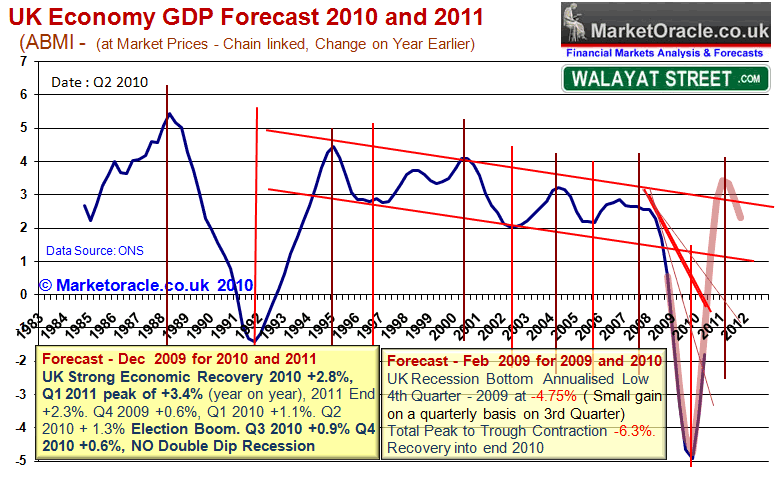
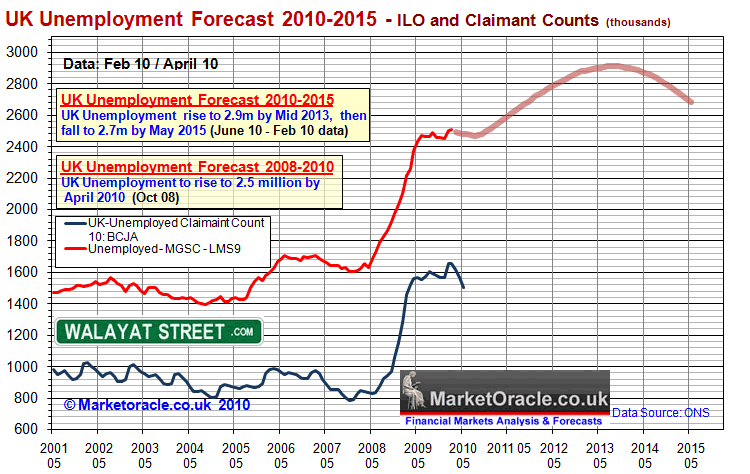
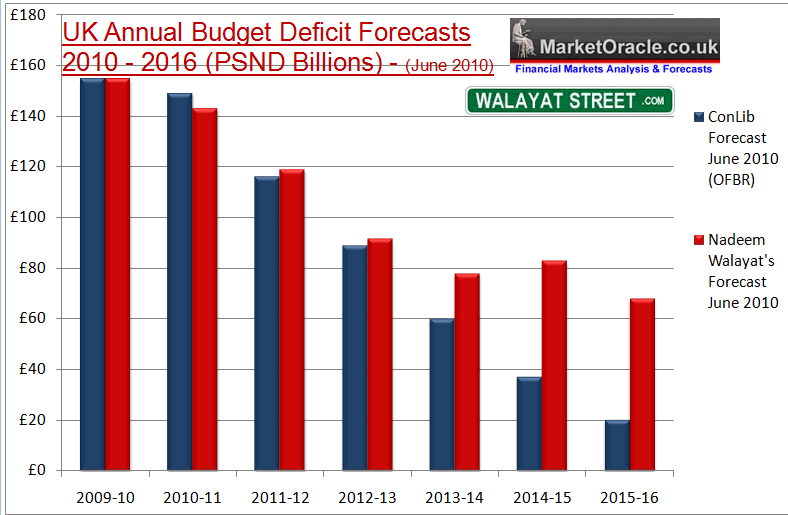
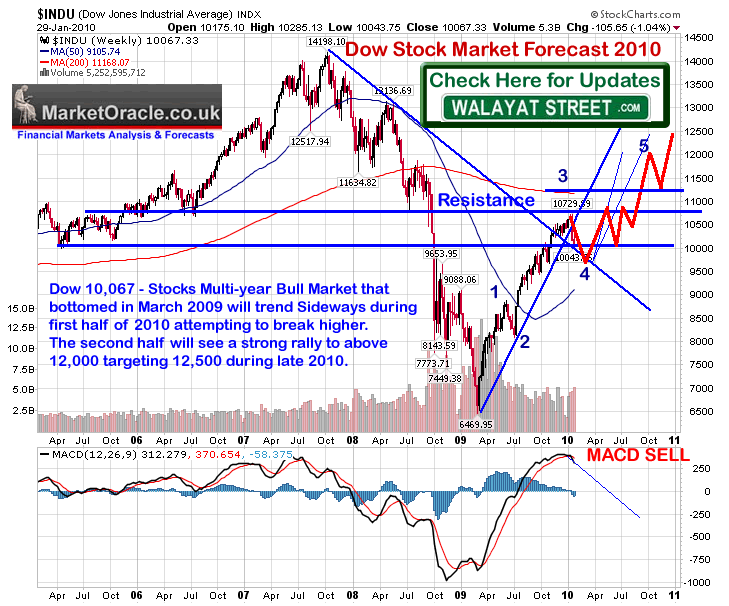
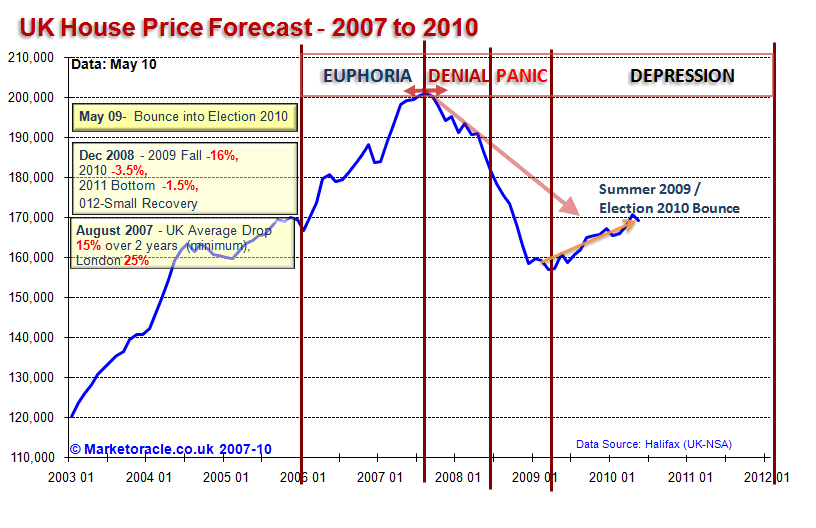
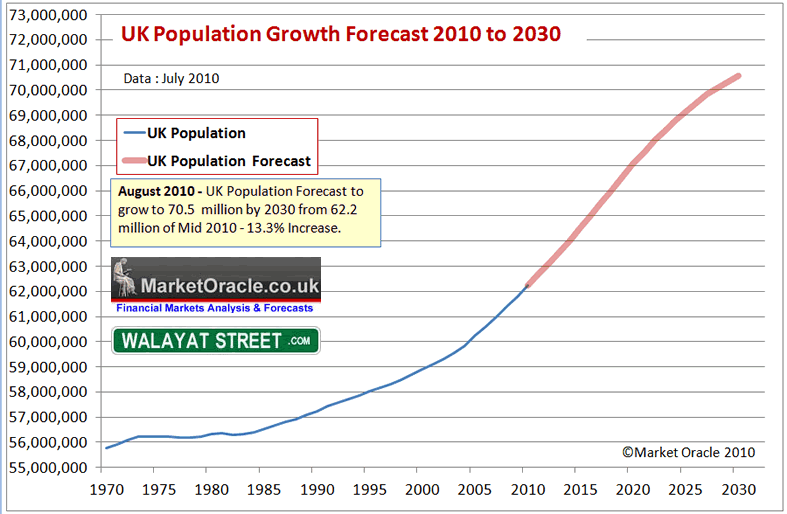
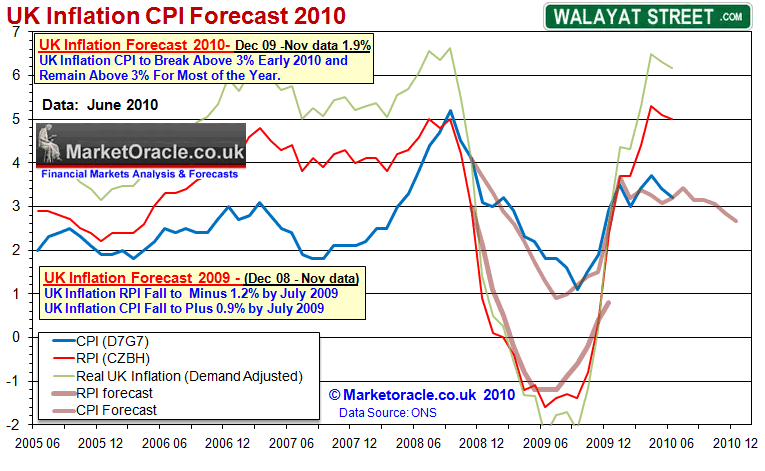
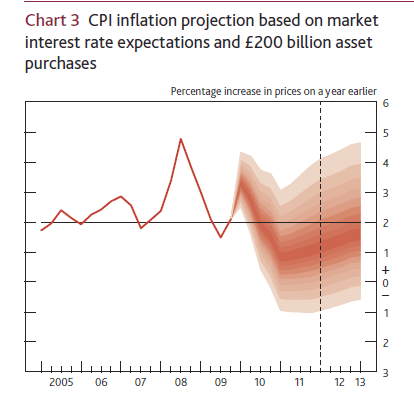 Bank of England's Worthless Inflation Forecasts
Bank of England's Worthless Inflation Forecasts